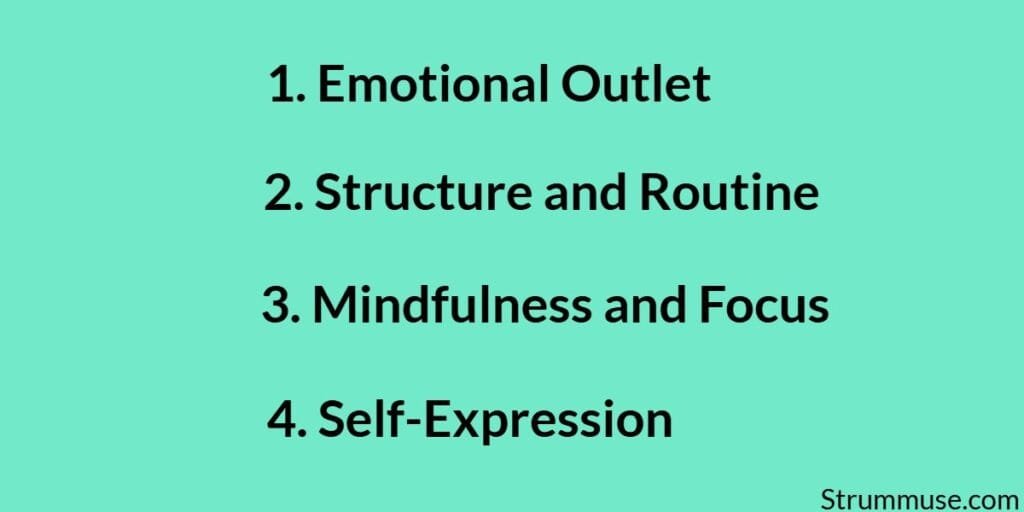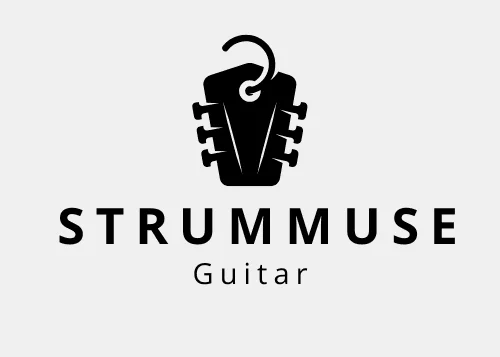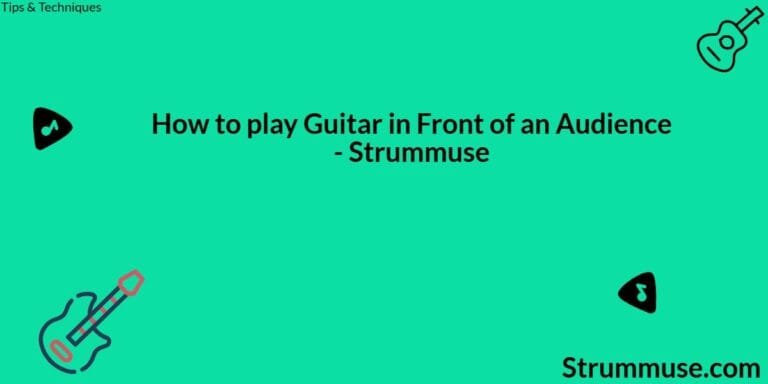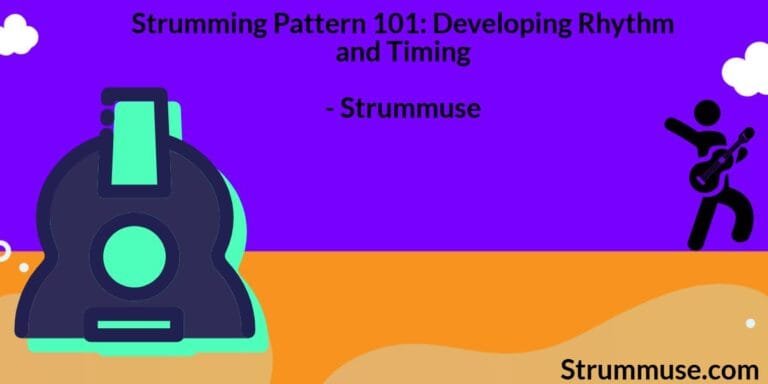Why Guitar Helps You Fight Depression – A Soulful Journey of Healing Through Strings
Introduction: Music as Medicine for the Soul
Depression isn’t just a low mood — it’s a deep, consuming state that dims the world’s colors and makes even the simplest tasks feel overwhelming. In such times, music becomes more than just entertainment; it becomes therapy. And among the many instruments that offer healing, the guitar holds a special place. Whether you’re strumming gentle chords or pouring your heart into a fingerstyle piece, the guitar becomes an extension of your emotions, your outlet, your safe space.
At StrumMuse, we’ve seen countless beginners and professionals alike discover that picking up a guitar is often the first step in picking themselves back up too. This isn’t just poetic—it’s backed by science and lived experiences.
The Science Behind Music and Mental Health
Multiple studies have shown that music triggers the release of dopamine, the brain’s “feel good” chemical. It also helps lower cortisol, the stress hormone. For those battling depression, even passive listening can elevate mood. But actively engaging in music, like learning and playing guitar, takes it a step further by combining creativity, motor skills, and emotional expression.
One study published in the Journal of Affective Disorders found that people who played a musical instrument for even 30 minutes a day reported lower levels of anxiety and depression symptoms.
And when it comes to instruments, guitar stands out for its accessibility, portability, and intimate connection with the player. It’s an instrument you can cry with, sing with, or just quietly hold when words fail.
How Guitar Playing Supports Mental Health

1. Emotional Outlet
When you’re depressed, words may not come easily. The guitar doesn’t ask for explanations — just emotion. Playing a soulful tune or even learning a simple strumming pattern gives you a safe place to let out what you’re holding in.
Try starting with emotionally rich songs like Kaise Hua – Guitar Chords, which are perfect for late-night reflective strumming.
2. Structure and Routine
Depression often disrupts daily routines. Having a goal like “learn one new chord every day” adds structure and achievement to your routine. At StrumMuse, we’ve curated guides like the 30-Minute Daily Guitar Routine that give your day purpose.
3. Mindfulness and Focus
Guitar playing is deeply mindful. You’re focused on your fingers, the strings, the sound. In that moment, your thoughts slow down. Just like meditation, playing guitar can pull you into the now.
Explore our beginner-friendly guides like Basic Guitar Chords for Beginners to start practicing mindfulness through music.
4. Self-Expression
Even if you can’t say how you feel, your guitar can. Write a riff, create your own progression, or play a sad Bollywood song. Expression is healing.
Check out our Fingerstyle Guitar Guide to learn how to add more emotion into your playing.
Real Stories: Guitar Saved Me
Many of our readers and community members have shared stories where guitar helped them navigate breakups, grief, burnout, and depressive episodes. One reader wrote:
“I used to feel numb, like the world had no meaning. Picking up the guitar gave me something to hold onto. It wasn’t a cure, but it was hope.”
At StrumMuse, we encourage every player to not just learn the instrument, but to use it as a partner in healing.
How to Begin Playing Guitar When Depressed
Starting anything new can feel daunting when you’re struggling with depression. Here’s how to ease into it:
- Start small: One chord per day.
- Set no expectations: Just play to feel.
- Use simple resources: Like our easy-to-follow Hindi Song Chords or English Guitar Chords
- Create a cozy space: Make your playing area comforting — not pressuring.
And if you’re overwhelmed, just hold the guitar. That alone is a beginning.
Guitar Techniques That Aid Mental Wellness
1. Fingerpicking & Plucking
Soft, repetitive fingerpicking creates a calming rhythm — almost like a lullaby.
Our Plucking Patterns Guide is ideal for calming practices.
2. Strumming for Stress Release
Aggressive or expressive strumming helps release pent-up frustration.
Start with tracks like Tera Ban Jaunga or Perfect by Ed Sheeran that blend emotional lyrics with powerful chords.
3. Writing Your Own Music
Compose something. Even a two-chord song. It’s not about being a musician. It’s about telling your story.
Professional Therapy + Guitar = A Holistic Approach
We always encourage combining guitar practice with professional help. Music helps—but therapy guides you. Talk to a counselor, and share your love for music. Many therapists incorporate music therapy, which amplifies the impact.
And if you’re a counselor yourself, consider suggesting guitar as a part of your client’s emotional routine.
Supportive Resources at StrumMuse
We’ve created several beginner-friendly guides and motivational resources to make guitar more accessible to everyone — especially those going through tough times:
Use them as building blocks on your journey.
“A study by Harvard Health confirms that music therapy reduces symptoms of depression.”
👉 Link: Harvard Health Article
Bonus: Healing Through Indian Classical Guitar
Indian classical music is known for its deep meditative effect on the mind. If you love ragas and soothing melodic phrases, try incorporating them into your guitar routine. Learn the basics of Indian scales with our guide on Indian Classical Scales on Guitar.
Raga-based improvisation is especially therapeutic because it lets you flow freely without rigid structures. You’re not trying to be perfect; you’re just letting your soul speak.
And if you want to fuse both worlds — Western guitar and Indian rhythm — explore posts like Guitar Meets Tabla to unlock your inner composer.
Let the Music Speak: Curated Guitar Compositions for Your Soul
Sometimes, you don’t even have to play — just listening to the right guitar compositions can do wonders for your emotional state. Platforms like Spotify and YouTube offer countless guitar instrumentals that are calming, meditative, and deeply moving. Here are some recommendations:
- 🎵 “River Flows in You – Guitar Version” by Sungha Jung (YouTube) – A delicate fingerstyle cover of the iconic piece that’s soothing and emotionally rich.
- 🎵 “Acoustic Concentration” Playlist on Spotify – Ideal for background listening during journaling or when winding down after a tough day.
- 🎵 “Tum Hi Ho (Instrumental Guitar Cover)” by Paras Nath – A blend of Bollywood and soulful guitar melodies.
- 🎵 “Calm Guitar” by Chillhop Music – A playlist featuring lo-fi, ambient guitar work that helps with sleep and focus.
Listening to such music while lying in bed, walking, or sipping tea can ease mental stress. These compositions often work as emotional triggers — releasing tears, memories, and feelings you’ve held in for too long.
Music doesn’t need lyrics to tell a story. A single guitar note can feel like it was written just for your heart.
Author’s Note ❤️
As someone who has personally faced mental health challenges, I know what it’s like to feel like nothing makes sense. But every time I played guitar — even just for a few minutes — something shifted. It gave me hope. I created StrumMuse because I knew others needed the same connection, the same safe space.
If you’re reading this and you feel stuck, remember: you are not alone. Let music be your light. Even in the darkest room, a single string can still vibrate.
Final Thoughts
Guitar won’t solve every problem. But it gives you one reason to wake up and try again. That alone is worth everything.
Whether you’re strumming softly in your bedroom or learning your first song, know that you’re doing something powerful. Something healing. And at StrumMuse, we’re with you every step of the way.
🎸 Play. Heal. Repeat.







